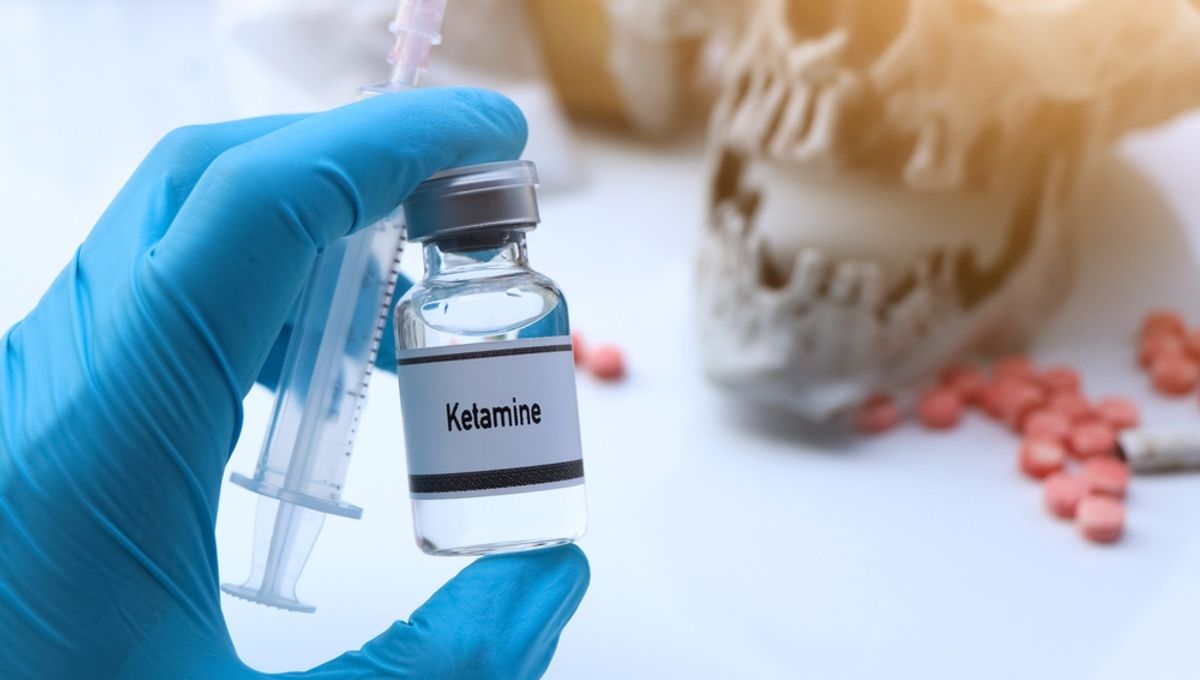
A randomized clinical trial has found that ketamine is life-changing for many people whose depression has failed to respond to other treatments. Moreover, the type of ketamine tested is much cheaper than the nasally administered S-ketamine that has been used in most previous trials, potentially bringing the treatment within reach for those who can’t afford the patented version.
Numerous studies have found that ketamine can treat Major Depressive Disorder (MDD) in a substantial portion of people who don’t respond to other treatments. When it works, the improvement is usually astonishingly rapid. Ketamine’s association in the popular mind with party drugs and date rape have blunted the growth of the treatment, but Professor Colleen Loo of the University of New South Wales told IFLScience; “Cost is the biggest barrier.”
A single dose of S-ketamine costs 800 Australian dollars ($550 US), and some countries have even higher prices. “With the S-ketamine nasal spray, you are out of pocket by about $1200 for every treatment by the time you pay for the drug and the procedure,” Loo said in a statement. Patients start out taking it twice a week, although can sometimes move to a less frequent dosage after a while. Even where the drug is publicly subsidized, that’s usually unaffordable, especially for someone whose depression has affected their earning capacity.
It’s not surprising then that some people take black market ketamine instead, but that’s a very risky approach; the product an illegal dealer is selling is unlikely to be pure, if it’s even ketamine at all. There can also be serious side effects, both physical and mental, in the first two hours after administration, which can be addressed in medical centers, but could be fatal elsewhere.
Hospitals buy generic ketamine for its other medical uses, however, and Loo told IFLScience it costs them around A$5 (US$3) a dose. If injections of generic ketamine can have the same benefits as the patented version, a lot more people could benefit.
A few trials have suggested this, but these have either had very small sample sizes or problems in their design. Loo has been part of a study of 179 people with treatment-resistant MDD who were administered either ketamine or a placebo. Other randomized control trials for ketamine have not been effectively blinded – the effects of the placebo were so different from ketamine that everyone quickly knew which arm of the trial they were in.
Loo’s study used midazolam, which also has sedative effects and interferes with memories, as the placebo, making it harder for participants to tell which they had got – but the two produced radically different outcomes.
Just 2 percent of those who got the placebo improved so much they were no longer had MDD according to the Montgomery-Åsberg Rating Scale for Depression. The figure was 19.6 percent for those given ketamine. Another third of ketamine recipients continued to be depressed, but at least halved the severity of their condition.
Impressive as this is, on the surface these results don’t look as good as for one of the major trials of S-ketamine. There, half the recipients of the drug ceased to be considered depressed. However, Loo told IFLScience that the two trials were not directly comparable. Patients in her trial had all received at least two other treatments previously, and remained depressed, whereas some of the S-ketamine patients had less experience with other treatments. “We also have stricter criteria for remission,” Loo said.
The difference between the groups can be seen in the placebo recipients. Where just 2 percent in Loo’s trial got better on their own, the figure was 20 percent in the S-ketamine trial. In that context, Loo believes generic ketamine is at least as effective as the existing drug, while also having the potential to become much more widely available.
The benefits of curing one in five people with treatment-resistant MDD are hard to overstate. To get there, Loo says wider awareness among psychiatrists of the potential is key, along with training in safe administration.
The study is open access in the British Journal of Psychiatry.
Source Link: Cheap Form of Ketamine Effectively Treats Depression Where Other Approaches Failed